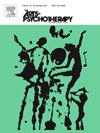A proposed Critical Theory of Music Vilification to explain “problem music”
IF 1.5
3区 心理学
Q3 PSYCHOLOGY, CLINICAL
引用次数: 0
Abstract
Links between certain music genres and detrimental behaviors and impacts have often resulted in labeling specific music genres as problematic. The resultant concept of so-called problem music (SCPM) typically focuses on hip hop and rock as well as their related genres. However, researchers have repeatedly found a lack of causal empirical evidence of SCPM and noted that the essential aspect is not the music genre, but rather how the music functions for the individual. This paper proposes the Critical Theory of Music Vilification (CTMV) to explain the vilification of SCPM. First, individuals exist within greater societal systems that oppress and marginalize people. Drawing from theories of social and musical identities, people may embrace SCPM to critique oppressive systems and develop social cohesion through in-group identities. Based on theories of stereotypes in music, societal systems often further ostracize people based on their music preferences and musical identities and people may experience harm. The experienced vilification and harm can reinforce people’s music preferences and corresponding musical identities. Societal systems then may vilify the music that was meant to critique their own systemic and policy failures, resulting in a cycle of music vilification. By including systems of oppression, classism and stereotypes in music, and music preferences and musical identities that critique systems and provide social cohesion, the CTMV provides context to SCPM as a socially constructed idea lacking empirical evidence. Implications, limitations, and suggestions for future research are provided.
为解释 "问题音乐 "而提出的音乐中伤批判理论
某些音乐流派与有害行为和影响之间的联系往往导致将特定音乐流派贴上问题音乐的标签。由此产生的所谓 "问题音乐"(SCPM)的概念通常集中在嘻哈和摇滚乐及其相关流派上。然而,研究人员一再发现,SCPM 缺乏因果关系的实证证据,并指出问题的关键不在于音乐类型,而在于音乐对个人的作用。本文提出了音乐诋毁批判理论(CTMV)来解释 SCPM 的诋毁。首先,个人存在于压迫和边缘化人们的更大的社会体系中。根据社会和音乐身份理论,人们可能会接受 SCPM 来批判压迫性制度,并通过群体内身份来发展社会凝聚力。基于音乐刻板印象的理论,社会系统往往会根据人们的音乐偏好和音乐身份进一步排斥他们,人们可能会受到伤害。所经历的诋毁和伤害会强化人们的音乐偏好和相应的音乐身份。然后,社会系统可能会诋毁旨在批判其自身制度和政策失误的音乐,从而导致音乐诋毁的循环。通过将音乐中的压迫制度、阶级歧视和陈规陋习,以及批判制度和提供社会凝聚力的音乐偏好和音乐身份纳入其中,CTMV 为 SCPM 这一缺乏实证证据的社会建构理念提供了背景。本文还提出了未来研究的意义、局限性和建议。
本文章由计算机程序翻译,如有差异,请以英文原文为准。
求助全文
约1分钟内获得全文
求助全文
来源期刊

Arts in Psychotherapy
Multiple-
CiteScore
3.20
自引率
11.10%
发文量
66
期刊介绍:
The Arts in Psychotherapy is a dynamic, contemporary journal publishing evidence-based research, expert opinion, theoretical positions, and case material on a wide range of topics intersecting the fields of mental health and creative arts therapies. It is an international peer-reviewed journal publishing 5 issues annually. Papers are welcomed from researchers and practitioners in the fields of art, dance/movement, drama, music, and poetry psychotherapy, as well as expressive and creative arts therapy, neuroscience, psychiatry, education, allied health, and psychology that aim to engage high level theoretical concepts with the rigor of professional practice. The journal welcomes contributions that present new and emergent knowledge about the role of the arts in healthcare, and engage a critical discourse relevant to an international readership that can inform the development of new services and the refinement of existing policies and practices. There is no restriction on research methods and review papers are welcome. From time to time the journal publishes special issues on topics warranting a distinctive focus relevant to the stated goals and scope of the publication.
 求助内容:
求助内容: 应助结果提醒方式:
应助结果提醒方式:


